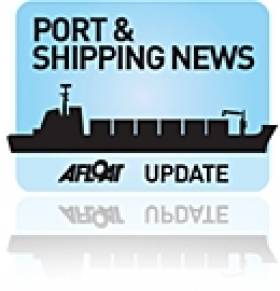Displaying items by tag: Mike Brownrigg
UK Shipping Industry Rejects Emissions Trading Scheme
The UK's shipping industry has rejected the European Union's new emissions trading scheme, claiming it is unworkable in a global business.
The Guardian reports that campaigners have called for the inclusion of an emissions trading scheme as part of the EU's carbon reduction programme.
But Mike Brownrigg, director-general of the UK Chamber of Shipping, dismissed the idea as unworkable, claiming that ships would simply refuel at non-EU ports to avoid emissions quotas.
Brownrigg maintained that any solution must be "global - through the International Maritime Organisation - rather than regional".
He added that "we are just at the beginning of this discussion" - despite what The Guardian describes as "years of talks between shipping companies and governments over how to reduce emissions from the sector".
The Guardian has more on the story HERE.
























































